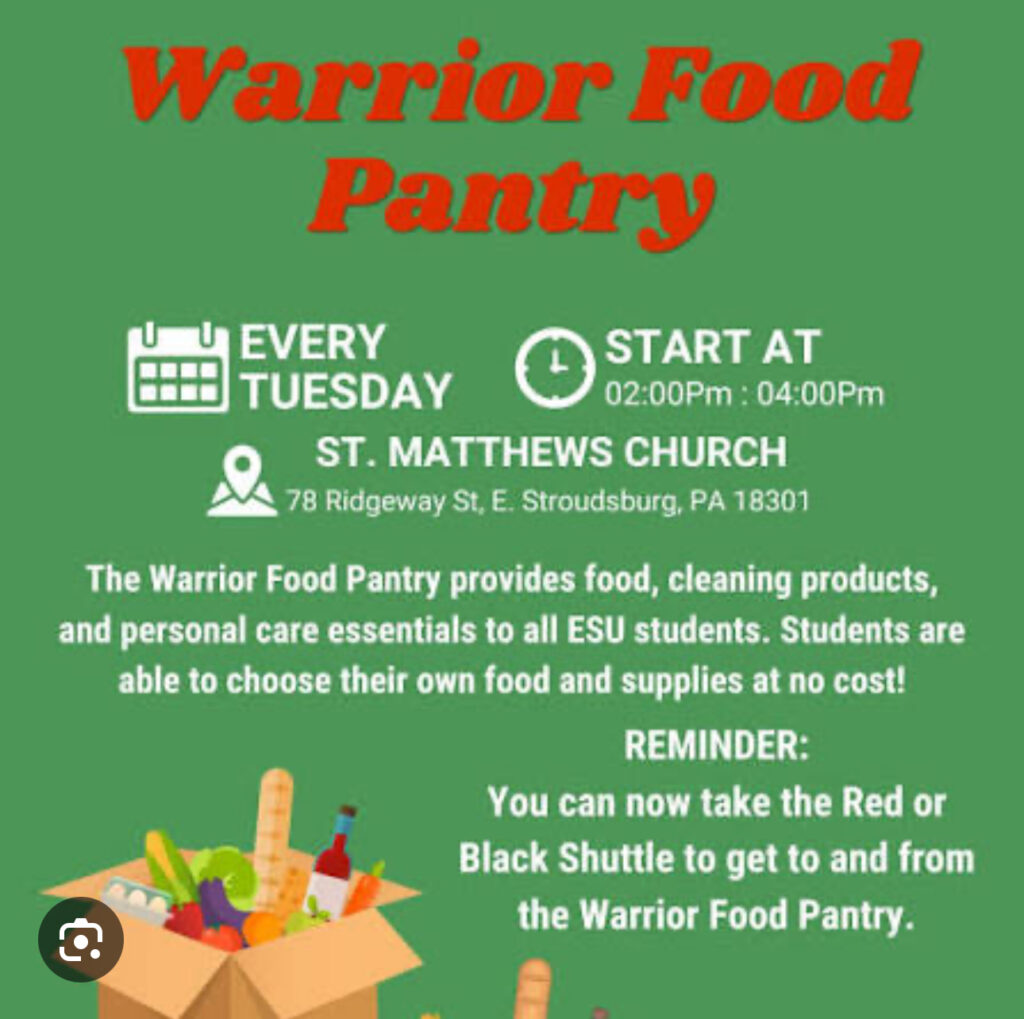Patrick Smythe
Contributing Writer
No student should have to choose between textbooks and groceries, yet many do. This harsh reality affects both academic performance and health.
Food insecurity in the United States is a significant problem with rates on college campuses even higher than those for the general population. Students are forced to make difficult choices.
The United States Accountability Office (GAO) determined that, “About 3.8 million college students experienced food insecurity in 2020,” and that, “Among food insecure students in 2020, a majority (2.2 million) had very low food security, meaning they reported multiple instances of eating less than they should or skipping meals because they could not afford enough food” (gao.gov, 2024).
Many college students today face food insecurity for several reasons. Rising costs for tuition, housing and textbooks add to the expenses that students need to budget.
In addition, insufficient financial aid, stagnant wages and expensive meal plans contribute to the economic factors that force students to choose between food and other necessities. Sometimes students face issues finding affordable food when the dining halls are closed or when school is closed for breaks and holidays.
Some students also face gender and race discrimination which adds to their food insecurity.

Food insecurity on college campuses affects a vulnerable population. It has impacts on their physical well-being leading to issues with obesity, diabetes, poor sleep, increased smoking, and lower physical activity. It impacts their emotional well-being during a crucial time in its development and can lead to increased anxiety and depression. It impacts their academic abilities with difficulties with sleep, concentration and cognitive functioning. It even affects them socially.
Students who cannot afford to eat a meal miss opportunities to connect with other students, leaving them isolated and alone.
According to Kayla Simon, the Coordinator of Wellness Education and Prevention at East Stroudsburg University, the Spring 2024 College Health Association College Health Assessment indicated that the number of college students at East Stroudsburg University that face any food insecurity is higher than the national average with two out of three students facing a level of food insecurity and one out of three facing moderate to high levels of food insecurity.
The East Stroudsburg University Health and Wellness Center helps combat food insecurity on campus in several ways. The first way is with mini meal kits for students paid for by Pennsylvania Hunger Free Campus Grant which the university received several years ago. Students can access the meals through a QR code and there are no limits and no questions asked.
The students can let the Health and Wellness Center know about any food allergies or any food prohibitions. Students will receive two breakfasts, two lunches, two dinners and snacks.
In addition, there are six Warrior Wellness Cabinets around the campus that contain personal hygiene and home cleaning kits. Simon says that if students cannot afford food, then they are most likely struggling to keep themselves and their homes clean as well.
The Health and Wellness Center also partners with the Warrior Food Pantry which provides free food and supplies to students. The Warrior Food Pantry is a stand-alone organization run by retired faculty and staff of the university. The pantry does not allow any current faculty or staff or student volunteers in order to make it a safe space for students to seek help. The food pantry ensures that students have access to necessary food and personal hygiene items that they need for their well-being.
According to Robert Moses, former head of Residence Life and a current Warrior Food Pantry volunteer, students are allowed to choose their own food and there is no cost for ESU students. They just need to swipe in with their ID. Moses says that about 75 to 80 students are now coming each week and that those numbers are rising with a large number of freshmen coming to the pantry this year.
The Warrior Food Pantry is located at St. Matthews Church at 78 Ridgeway St. in East Stroudsburg. It is open every Tuesday from 2 p.m. to 4 p.m. Students can now take the Red or Black Shuttle to get to and from the food pantry.
Donations are also appreciated. Red boxes are located throughout campus to collect food donations.

